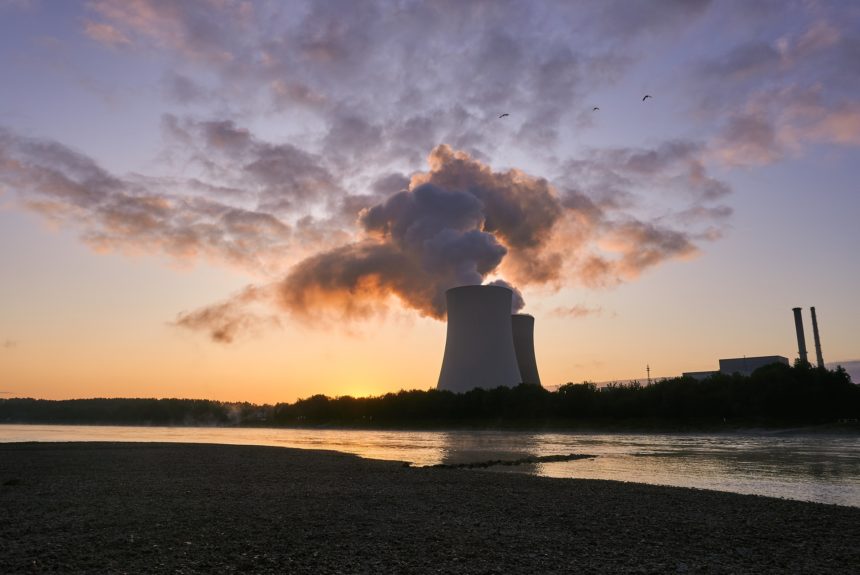In a massive win for the future of nuclear power in America, West Virginia policymakers overwhelmingly voted to repeal the state’s ban on nuclear power plants, opening the door for investment in the world’s largest source of clean energy. The significance of this can’t be overstated. Nuclear is a zero-carbon energy resource that can come close to replacing the state’s dependence on coal. If a coal-heavy region like West Virginia can wean itself off coal and turn to abundant, clean nuclear energy, it could set a powerful precedent for the worldwide energy transition.
West Virginia’s coal production is quickly fading. In 2020 alone, the state’s production decreased 27.9% and it lost 14.3% of mining jobs. At coal’s peak in the 1950s, over 100,000 coal miners were employed in the state. That has dwindled down to around 11,000, which still represents over a quarter of all coal miners in the U.S.
The fallout has been devastating. The job losses sprouted a major opioid epidemic, spurring the highest rate of opioid overdoses in the country. If you travel through the state, it’s hard to miss the plethora of desolate, sometimes abandoned, towns juxtaposed against beautiful mountain backdrops. The environmental ruin is devastating as well. Once-pristine forests and rivers have been altered potentially forever.
>>>READ: After Decades of Waiting, Nuclear Fusion is Moving into Full View
So what prompted the proposed rule change on nuclear energy?
This particular code, written in 1996, states that nuclear power “poses an undue hazard to the health, safety, and welfare” of West Virginians. While this may still be the position held by groups like the Sierra Club or Greenpeace, our current understanding of the facts around nuclear power’s risks confirms how unscientific the assertion is.
The supposed undue hazard of nuclear power refers to the risk of a reactor accident – à la Three Mile Island, Fukushima, or Chernobyl. The concern is that a plant would “melt down” and cause untold, radioactive damage to local communities. But these incidents are completely blown out of proportion. Worldwide, about 100 deaths have been attributed to accidents or radiation from nuclear power, ever. To put this in perspective, there are an estimated 100 to 150 solar roofing deaths per year. It’s also important to note that most of the nuclear-related deaths were from Chernobyl. The lack of safety standards in Soviet-era Ukraine would never be tolerated here and the design of the Chernobyl reactor was flawed. America’s nuclear reactors can’t melt down like Chernobyl.
Luckily, state legislators appeared to agree with the scientific evidence, as they voted to overturn the 1996 code. Nevertheless, besides the debunked safety concerns, there are in fact plenty of reasons why West Virginia is a particularly good fit for the next generation of nuclear power plants.
First of all, it is the only clean power source with the ability to realistically replace all of West Virginia’s coal demand. Once the plants are constructed they will be locked into providing constant electricity for decades, regardless of the weather, and using much less real estate than renewable alternatives.
The transition will be beneficial for jobs, too, in a state where energy workers have faced serial job losses. According to a NuScale report, most coal jobs are relatively easy to transition to nuclear jobs.
Wyoming, the only state that produces more coal than West Virginia, is already ahead of the curve as it lured Bill Gates’ investment in America’s first advanced nuclear reactor, and it’s going to be located on the site of a former coal mine. The next generation of reactors is specifically targeting coal states, with the promise of retrofitting old coal mines for nuclear plants.
Additionally, the regulatory atmosphere looks set to become more friendly to advanced nuclear. The time and costs it takes to build nuclear reactors are a major hurdle for the industry, but that’s mostly because of burdensome regulations imposed by the federal government. Smaller reactors could potentially be standardized and scaled up more quickly. Additionally, many of the new designs have more advanced, built-in safety features that should mitigate any safety concerns.
Some will tell you that New York and California should determine climate policy because they have the largest populations. Yet they also have some of the highest electricity prices, experience frequent blackouts, and import more fossil fuels than they care to talk about. A major reason for that is their abandonment of nuclear power.
New York closed the fully-functional Indian Point nuclear plant in 2019, and the state’s electricity grid immediately got 46% dirtier. California is set to close its last nuclear plant, Diablo Canyon, in 2025. A recent MIT/Stanford study estimated that keeping the plant open would save the state $21 billion and 900,000 acres required to fill in the gaps with solar panels.
Despite impressive gains in solar and wind power, fossil fuels are still replacing most of the energy lost when nuclear reactors close. Europe apparently didn’t expect this when they abandoned it after Fukushima. The math just doesn’t add up. Yet against all odds, West Virginia is now in a position to lead the way on a much more realistic energy transition.
By repealing its absurd, unscientific ban on nuclear plants, West Virginia is on the right track to give its energy system and citizens a new lease of life.
Christopher Barnard is the national policy director at the American Conservation Coalition (ACC).
The views and opinions expressed are those of the author’s and do not necessarily reflect the official policy or position of C3.
